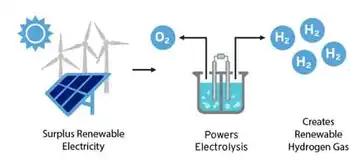Extra electric fees give some a jolt: Unincorporated areas report being hit with city taxes
TEXAS - Take a close look at your electric bill. You might be paying for something you shouldn't.
Some businesses and homeowners outside city limits - no one can say exactly how many - are paying taxes that are supposed to be paid only by those in incorporated areas.
In some cases, especially for small businesses, the extra charges, which can show up as city sales taxes or as a "gross receipts" tax, can be substantial.
Just ask Charles Fogarty.
For more than a year, his steakhouse paid a total of $1,400 in Houston sales and other taxes. A consultant hired by Fogarty to lower his electric bills brought it to his attention.
"I knew I was in an unincorporated part of town, so I wasn't in the city of Houston," Fogarty said. "The real question is, 'Did the power company really not know I was in the city and were they submitting those taxes to the state as though I was in the city or were they collecting that extra money and keeping it in their pocket?' "
Fogarty eventually got a refund from his then-provider, Direct Energy, with the consultant's help.
Direct Energy was passing on the taxes - a city sales tax and a gross receipts tax - that the state collects from retail electric providers.
Companies are allowed to pass the sales tax directly on to consumers in incorporated areas as a separate line item, but the state has allowed much latitude in how electric companies raise money to pay for the 2 percent gross receipts tax - a tax companies located in cities with more than 1,000 residents must pay simply to do business in the state.
The city sales tax usually appears as a line item on bills, but the gross receipts tax may not.
Electric providers can put the burden on customers to point out they aren't located in an area where the taxes apply.
The barriers to even finding out how much was paid can be daunting for a residential user. That's because not every company makes it easy to decipher how the gross receipts tax is recovered.
Reliant Energy, for example, rolls this business expense into residential rates in a way that can't be broken out, the company said.
Its large commercial and industrial customers, depending on the wording of their contracts, do see the gross receipts tax as a separate line item on their bills, said Pat Hammond, a spokeswoman for the Houston company.
But Reliant's residential customers, regardless of where they live, have the tax wrapped into their rates, she said.
TXU has a similar policy, a spokeswoman said.
Collection methods differFogarty eventually switched electric providers, but not before he got a refund.
Lisa Dornan, a spokeswoman for Direct Energy, said the company leaves it to customers to notify it that they are in an unincorporated area.
"It is not uncommon for us to receive that information from the customer," Dornan said.
Reliant, however, handles the gross receipts tax differently.
"It is a cost of doing business that is considered in setting our price for these products," Hammond said, adding the company has been audited by the comptroller's office in 2004 and 2005 and no major discrepancies were found. "We don't collect a tax directly from the customer."
In other words, Reliant, as well as TXU, doesn't pass through a 2 percent gross receipts levy on each customer's bill. Instead, the same cost is built into the rate it charges everyone.
The Texas Comptroller's office couldn't say if Reliant and TXU's method results in gross receipts taxes being collected when they shouldn't, but Deputy Comptroller Billy Hamilton said the agency will look into it further.
The Public Utility Commission said it approved Reliant and TXU's gross receipts collection method for the state-regulated prices they were forced to charge in their home markets when the deregulated electric market began in 2002. But they don't regulate competitive rates that companies started offering.
Terry Hadley, spokesman for the commission, suggested customers look out for themselves if they subscribe to unregulated plans.
"If you're out of the city, ask Reliant, 'Gee, shouldn't I get a percentage discount because I'm not liable?' Or the customer could shop for a better rate," Hadley said.
Data not always exactEveryone outside a city may also want to check to make sure they're not paying a city tax.
Tara Energy, for instance, says its software calculates the taxes based on the city and county information a customer gives, which is not always exact.
"If they're outside the city limits, the customer needs to let us know," said Mohsin Hassan, vice president of operations at the company.
The company does, however, pass the gross receipts tax on to customers regardless of where they live, because that's the advice the company got from the comptroller's office years ago, he said.
Hamilton said he wasn't clear on what Tara was told and would have to look into the matter.
Comptroller can helpIf business owners who discover they've overpaid a tax aren't successful in getting a refund directly from the provider, they can file for one with the comptroller, Hamilton said.
Since deregulation began, the comptroller has collected more than $1 billion in gross receipts taxes from electric providers. But no one at the agency could say how much came from unincorporated areas.
So how does the state know it's collecting the right amount?
"We audit," Hamilton said. "We audit 14,000 taxpayers a year."
In the past five years, six retail electric providers have been audited by the state, according to the comptroller's office.
Related News

'For now, we're not touching it': Quebec closes door on nuclear power
MONTREAL - Quebec Premier François Legault has closed the door on nuclear power, at least for now.
"For the time being, we're not touching it," said Legault when asked about the subject at a press scrum in New York on Tuesday.
The government is looking for new sources of energy. In an interview with The Canadian Press at Quebec's official residence in New York, Legault said there are a number of avenues to explore:
- Energy efficiency.
- Negotiations with Newfoundland and Labrador over Churchill Falls and Gull Island.
- Upgrading existing dams and building new ones.
"Nuclear power is not on the agenda," he said.
Yet the premier seemed…




